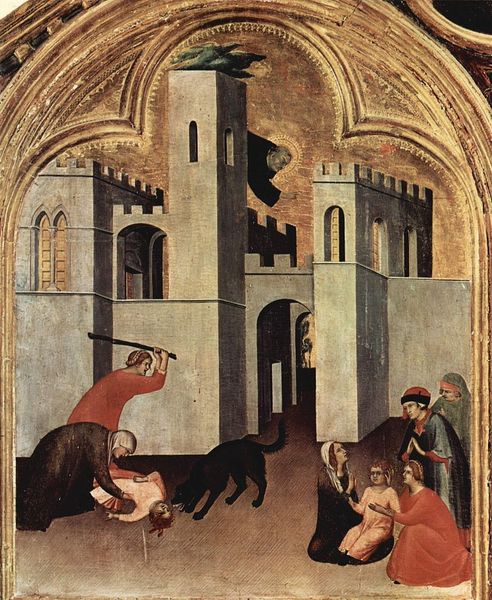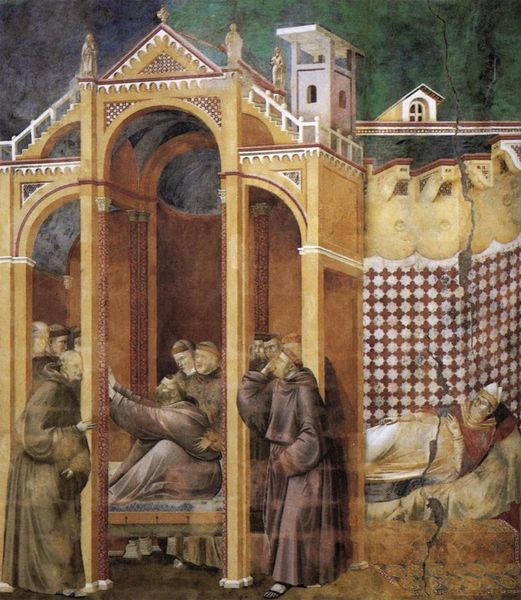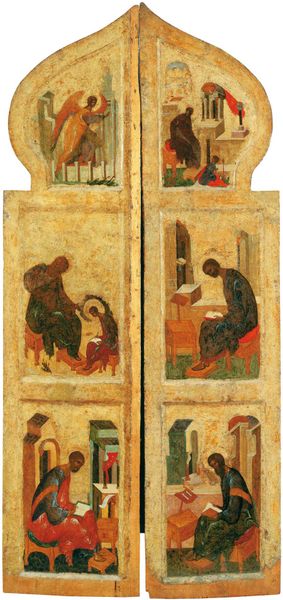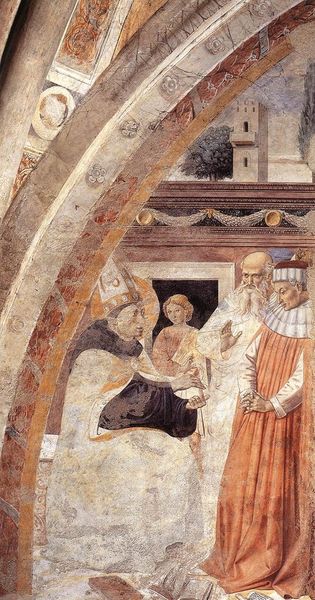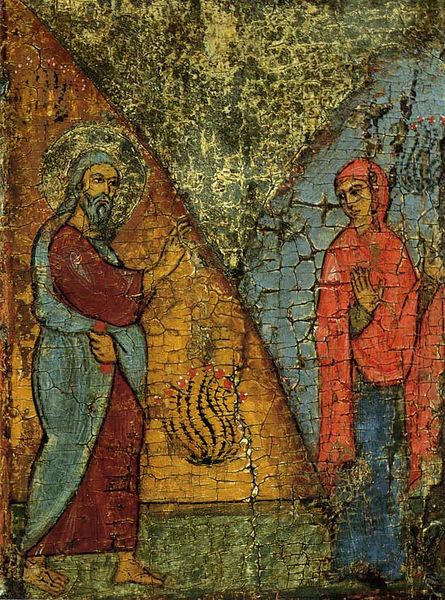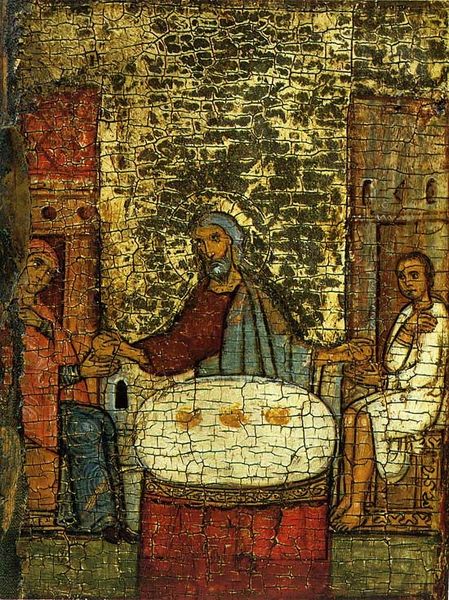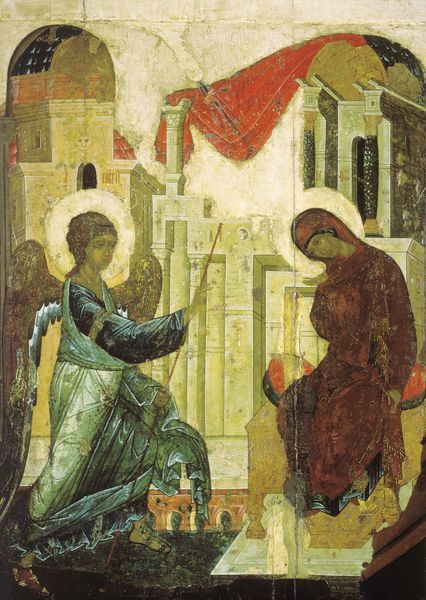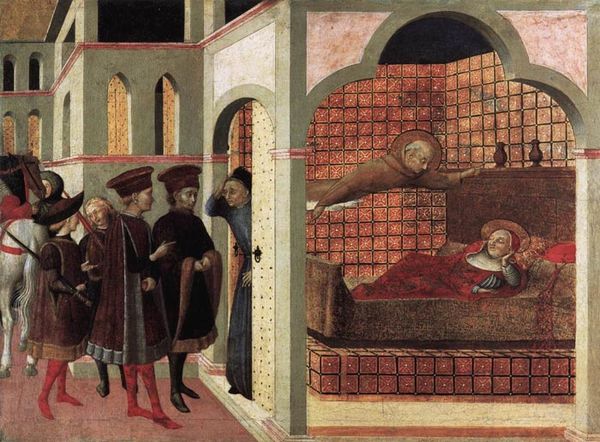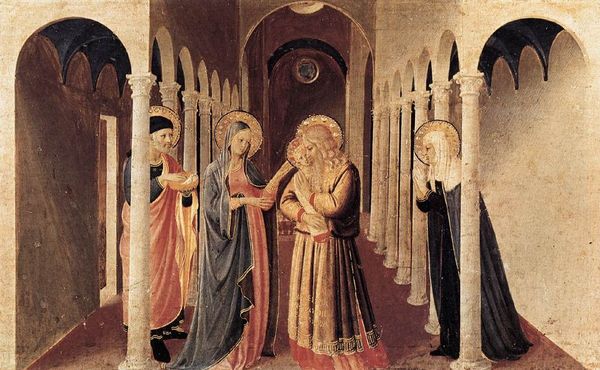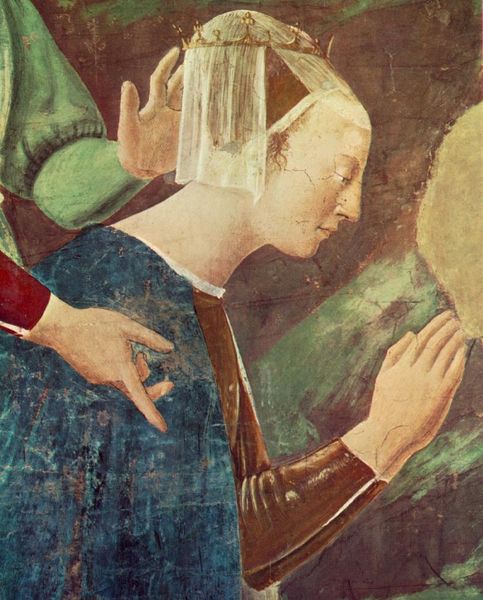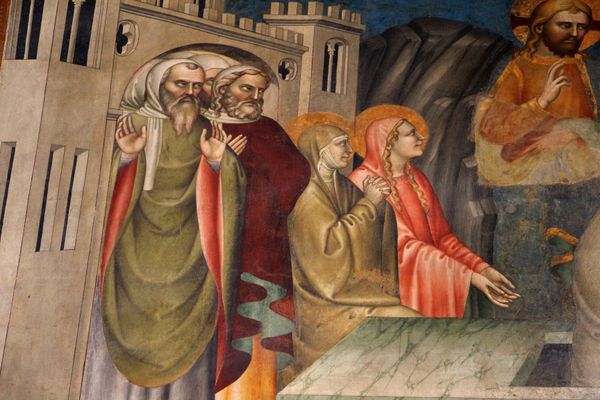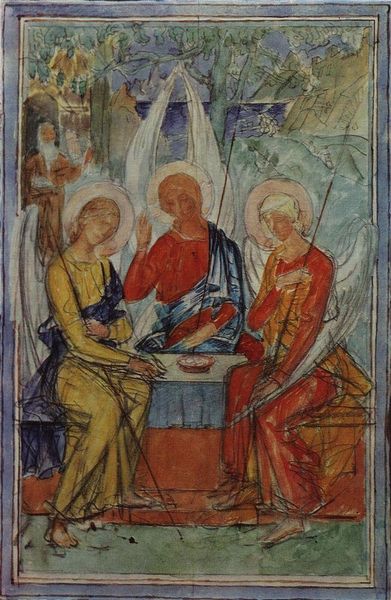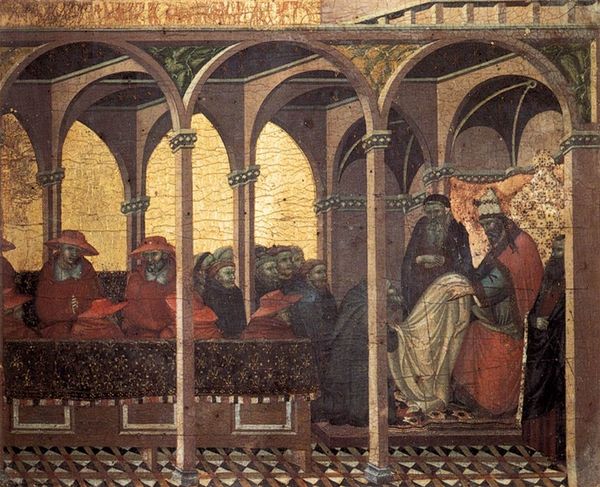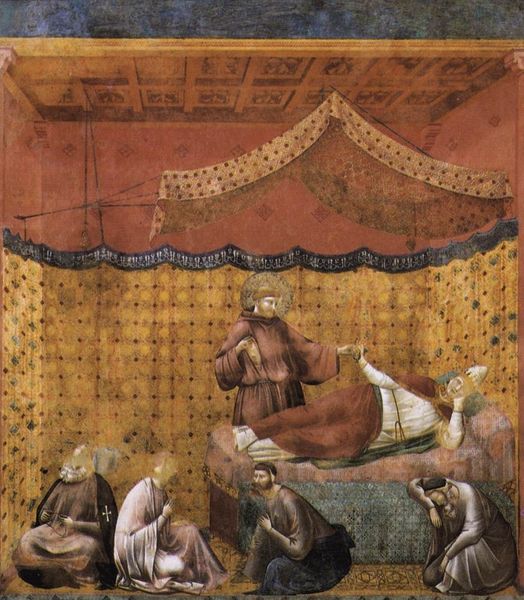
tempera, painting
#
narrative-art
#
tempera
#
painting
#
sienese-school
#
oil painting
#
history-painting
#
italian-renaissance
#
early-renaissance
Copyright: Public domain
Pietro Lorenzetti painted this image of Beata Umiltà transporting bricks to the monastery in Siena some time in the early 14th century. The image creates meaning through visual codes, cultural references, and historical associations. Lorenzetti was working at a time when religious institutions were central not only to spiritual life, but also to economic and political power in Italian city-states. Monasteries were not only places of prayer and contemplation but also significant landowners and employers. Here, the artist shows us the saint’s humility, her willingness to engage in manual labor for the good of her community. The halo signifies her holiness, while the bricks she transports symbolize the physical building of the monastery, a concrete manifestation of the spiritual community she serves. This type of art served a public role in shaping and reinforcing social values. We can research convent archives, local histories, and religious texts to understand the social and institutional context of this work.
Comments
No comments
Be the first to comment and join the conversation on the ultimate creative platform.
